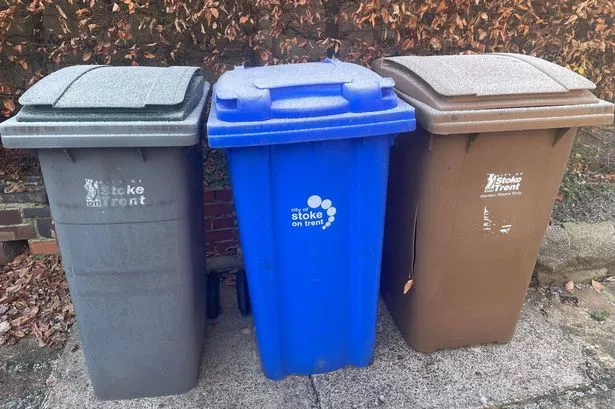The Labour party has launched a sharp critique of the existing waste collection system in the UK, denouncing it as “muddled and confusing” for households. They argue that the current patchwork of local council regulations creates unnecessary complexity and contributes to lower recycling rates nationally. To address this, Labour has proposed a standardized set of bin collection rules, aiming to simplify the process for residents and boost recycling efforts. These new rules, potentially coming into effect as early as March 2025, signify a significant shift in waste management policy and could have wide-ranging implications for both local authorities and individual households. The proposed changes are designed to promote greater clarity and consistency in waste disposal practices across the country.
Labour’s proposed standardization focuses on establishing a uniform system of separate waste streams for all households. This would likely involve designated bins for commonly recycled materials such as paper, card, glass, metal, and plastic, as well as separate containers for food waste and general refuse. The aim is to simplify the sorting process for residents, eliminating the confusion that arises from varying local council guidelines. Currently, the diverse range of collection schemes across different local authorities results in inconsistencies in the types of materials accepted for recycling and the designated containers used. This can lead to contamination of recyclable materials, reducing their value and hindering overall recycling efforts. Standardized bins would provide much-needed clarity and promote better sorting habits amongst residents.
The move towards standardized bin collections is a key component of Labour’s broader environmental agenda, which prioritizes achieving higher recycling rates and reducing landfill waste. The party argues that the current fragmented system hinders progress towards these goals, making it difficult to implement effective waste management strategies. By implementing a unified system, Labour hopes to streamline the recycling process, making it easier for households to participate and contribute to national sustainability targets. This standardized approach could also facilitate the development of more efficient collection routes and infrastructure, potentially leading to cost savings for local authorities. A more streamlined system could also incentivize greater investment in recycling facilities and technologies, further enhancing the nation’s recycling capacity.
However, the proposed changes are not without potential challenges. Implementing a nationwide standardized system would require significant investment and coordination from local councils. Local authorities will need to procure new bins for all households, adapt their collection infrastructure, and retrain waste management staff. Some councils may face financial constraints in implementing these changes, requiring additional government support to ensure a smooth transition. Furthermore, public awareness campaigns will be crucial to educate residents about the new system and ensure effective participation. Clear communication about the specific materials accepted in each bin and the collection schedule will be essential to minimize confusion and maximize recycling rates.
The potential impact on residents is another important consideration. While standardized bins aim to simplify the recycling process, the introduction of a new system could initially lead to some confusion and adjustment. Households may need to adapt their waste sorting habits and familiarize themselves with the new bin designations. Concerns have also been raised about the potential for increased bin storage space requirements, particularly for properties with limited outdoor areas. Addressing these practical considerations and ensuring a smooth transition for residents will be crucial to the success of the new scheme. Engaging with local communities and providing support throughout the implementation process will be essential to foster buy-in and ensure widespread adoption of the new recycling practices.
In conclusion, Labour’s proposal to introduce standardized bin collections by March 2025 represents a significant step towards streamlining waste management in the UK. The proposed system aims to address the confusion and inconsistency of current local council regulations, promoting higher recycling rates and contributing to national environmental goals. While the implementation of such a large-scale change presents certain challenges, including financial investment, logistical adjustments, and public engagement, the potential benefits for both the environment and individual households are substantial. If successfully implemented, standardized bin collections could significantly improve the efficiency and effectiveness of waste management across the country, paving the way for a more sustainable future. The success, however, will heavily depend on effective communication, collaboration between central and local government, and the willingness of residents to embrace the new system.














